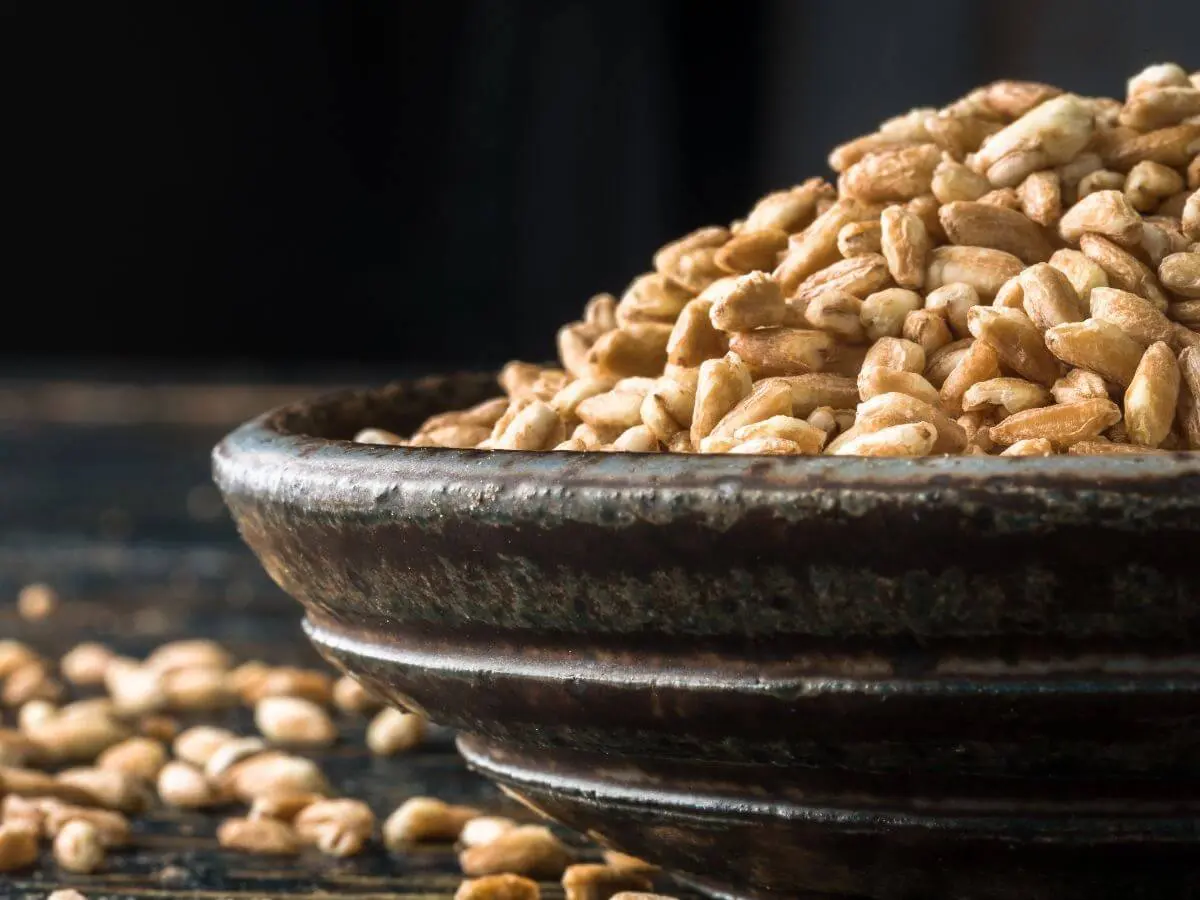Is Farro Gluten Free?
If you’re new to the gluten-free lifestyle, you may be wondering, is farro gluten free? Keep reading to find out if this ancient grain is safe to consume on your diet.

What is Farro?
Farro is a whole grain that is packed full of fiber and protein. It is chewy and very similar in texture and appearance to barley.
Farro is considered to be an ancient grain as it has been used for over 100 years. In fact, farro originated in the Fertile Crescent and was first found in ancient Egyptian tombs.
There are three main types of farro. These types include spelt, emmer, and einkorn.
Is Farro Inflammatory?
No, farro actually has many health benefits including being anti-inflammatory. Some types of farro also contain elevated amounts of antioxidants which may actually lower inflammation and decrease harm done by free radicals.
Is Farro Good for Your Gut?
Some types of fiber can actually boost gut health because it helps to aid the good bacteria in your belly. Also, fiber can help to resolve constipation issues because it adds bulk to your stools. With that being said, yes, farro can be good for your gut because it contains a lot of fiber.
Is Farro Gluten Free?
Unfortunately, no. Since farro is derived from wheat and is a whole grain wheat product, it should not be consumed by those who are allergic or sensitive to gluten.

What Percentage of Farro is Gluten?
While the specific percentage of gluten contained in farro is unknown, farro is derived from wheat and is a wheat product. So regardless of the actual percentage of gluten, it should be avoided if you have a gluten intolerance or allergy to gluten.
What is a Good Gluten-Free Substitute for Farro?
If you are looking for a gluten-free grain option, consider quinoa or brown rice. Both of these grains are safe to eat and are packed with nutrients.
You could also try sorghum, brown rice, or oat groats. All of these grains are gluten free and will make suitable replacements in most recipes.
What Grains Are Safe for Gluten-Free Diets?
Fortunately, there are quite a few grains that are perfectly safe for gluten free diets! These include Amaranth, Arrowroot, Buckwheat, and more!
If you are looking to get some more carbs into your diet you can try rice as well. There are many different types of rice that are excellent for gluten free diets. Some of these include basmati, jasmine rice, and white rice.
Another great carb option to add to meals is gluten free bread. There are many excellent gluten free bread brands available and a lot of them contain whole grains.
Other Gluten-Free-Grains
Grains have many health benefits as they include vital nutrients such as B vitamins, antioxidants, protein, fiber, and trace minerals like magnesium, iron, copper, and zinc.
A diet with an abundance of whole grains can decrease the risk of type 2 diabetes, some forms of cancer, heart disease, and obesity.
Some other grains that are gluten free and are excellent to supplement a healthy diet include:
- buckwheat
- sorghum
- tapioca
- millet
- quinoa
- brown rice
- wild rice

Is Barley Gluten Free?
No, unfortunately, barley is not gluten free. It is a very healthy whole grain with a lower gluten content but it wouldn’t be suitable for anyone that is allergic to gluten or has Celiac disease.
Is Freekeh Gluten Free?
No, freekeh is not gluten-free. Freekeh or farik is an ancient grain that is made from green durum wheat so it would not be safe to eat on a gluten free diet.
Is Bulgur Gluten Free?
Bulgur is unfortunately not gluten free as it is a wheat product. Other grains similar to bulgur that you will want to avoid if you cannot eat gluten include matzo meal, spelt, triticale, couscous, farina, graham flour, semolina, durum, rye, emmer, and einkorn.
Is Sorghum Gluten Free?
Yes, it is! Sorghum is an ancient grain that originated in Africa and is now cultivated in many other countries, including the United States. This nutritious grain is naturally gluten free so it is safe for celiacs to eat.

Is Kamut Gluten Free?
No, unfortunately, Kamut is not gluten free. Kamut is a variant of wheat and therefore contains gluten. If you have an allergy to wheat or gluten you should avoid eating Kamut or any Kamut-containing foods.
So Does Farro Contain Gluten?
Unfortunately, yes, farro does contain gluten and should be avoided when eating a gluten free diet. However, if you are looking for a gluten-free grain option, consider quinoa or brown rice.
Both of these grains are safe to eat and are packed with nutrients. You could also try sorghum, jasmine rice, or oat groats. All of these grains are gluten free and will make suitable replacements in most recipes.

More Posts Like This
- Gluten-Free Living Made Easy With These Perfect Gift IdeasFinding thoughtful gifts for someone who lives gluten-free can feel challenging, but it doesn’t have to be! Whether you’re shopping…
- How to Reheat a Rotisserie ChickenRotisserie chicken is known for its juicy meat and crispy skin, making it a favorite for easy family meals and…
- Tips for Cooking with Coconut OilCoconut oil has become increasingly popular recently, but how do you cook with it? And is it as healthy as…
- Are Tater Tots Gluten-Free?Many of you recognize tater tots as a popular snack in the United States. However, many people who need to…
- Is Sour Cream Gluten Free?Sour cream is gluten-free, containing cream, milk, and lactic acid. Some producers add gluten via thickeners, stabilizers, flavorings, and preservatives….













This article is so informative and helpful. Thanks for sharing!
You’re welcome! I am glad you liked it.
I had never thought about this, but being gluten free myself, it’s good to know. thanks!
You’re welcome!